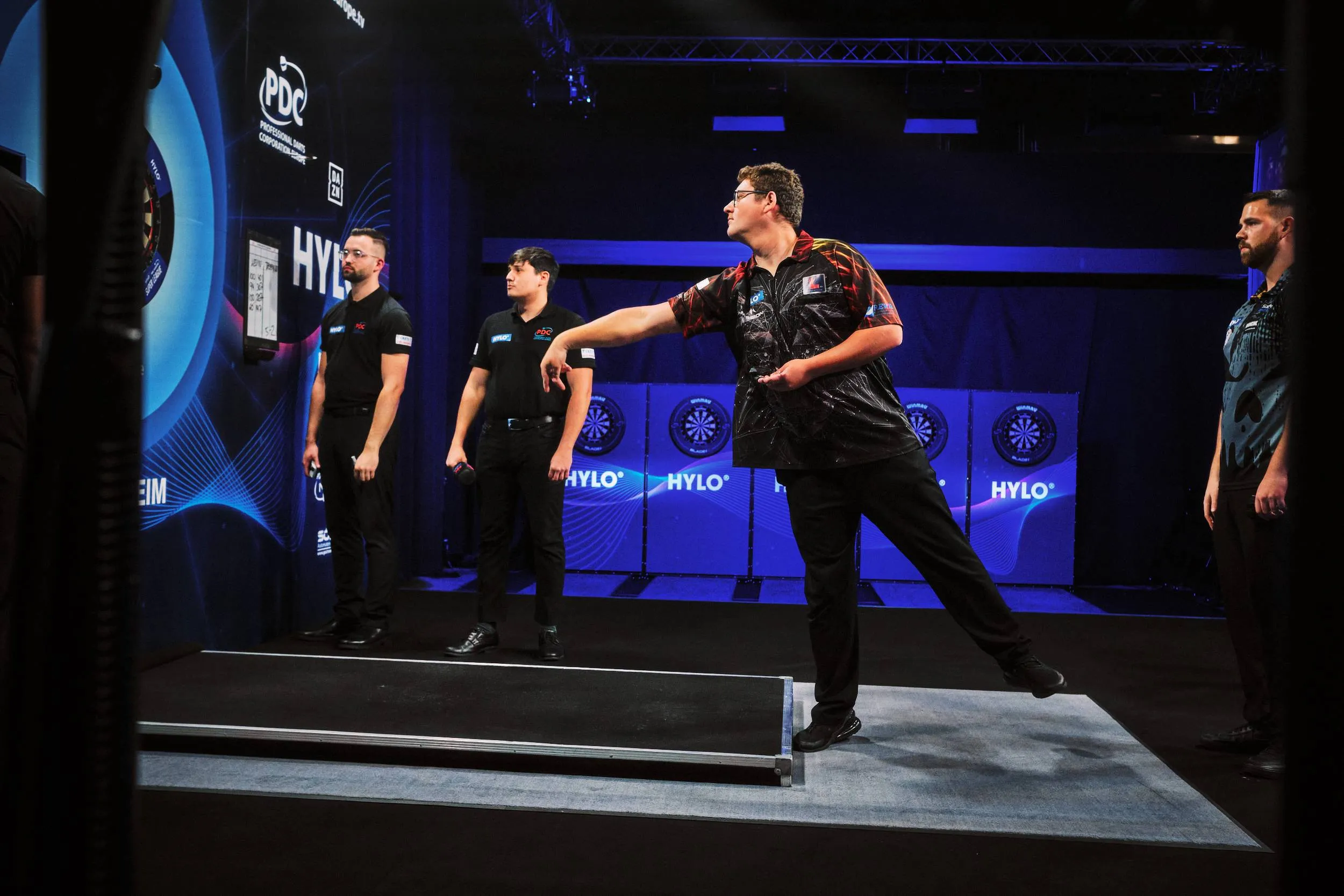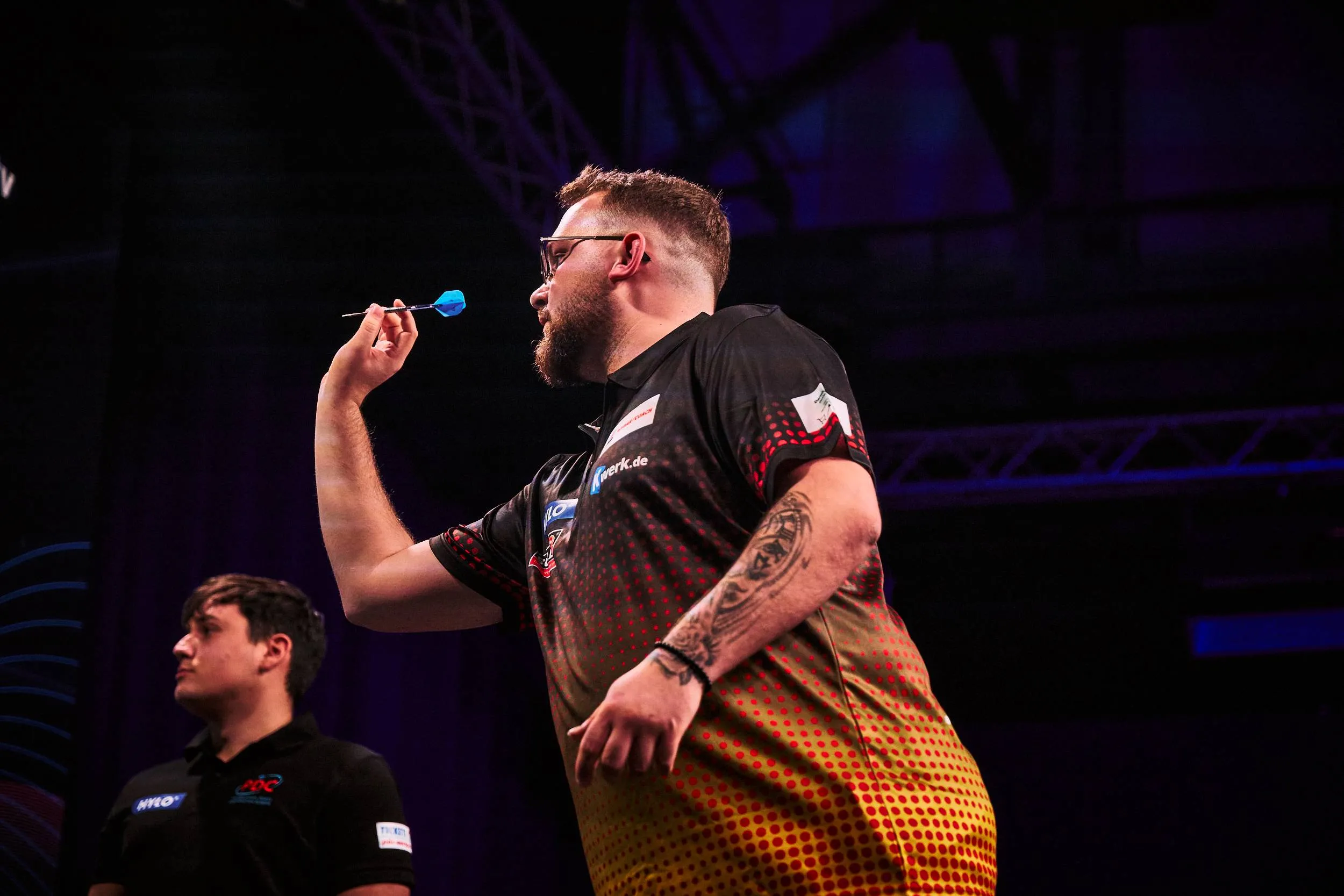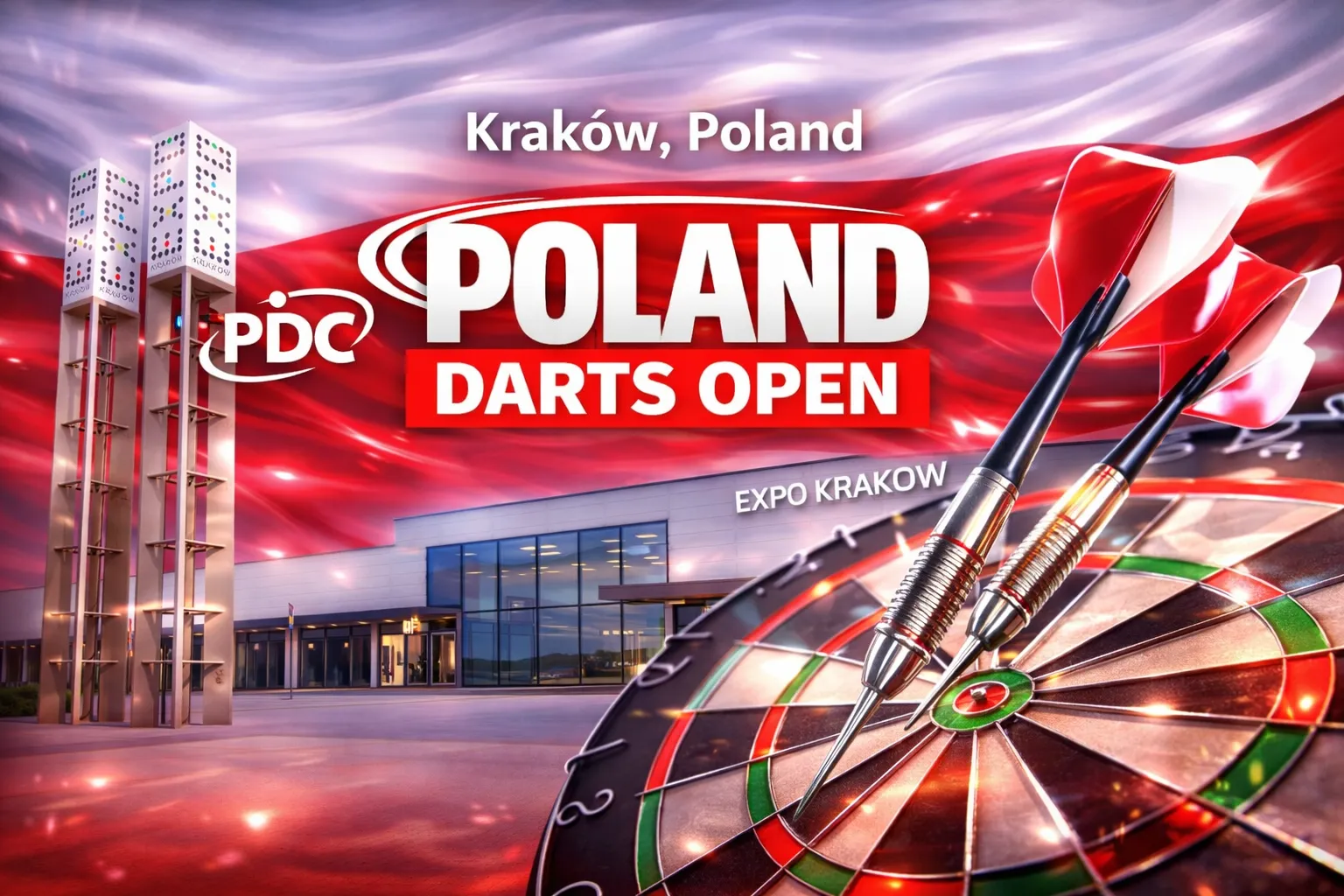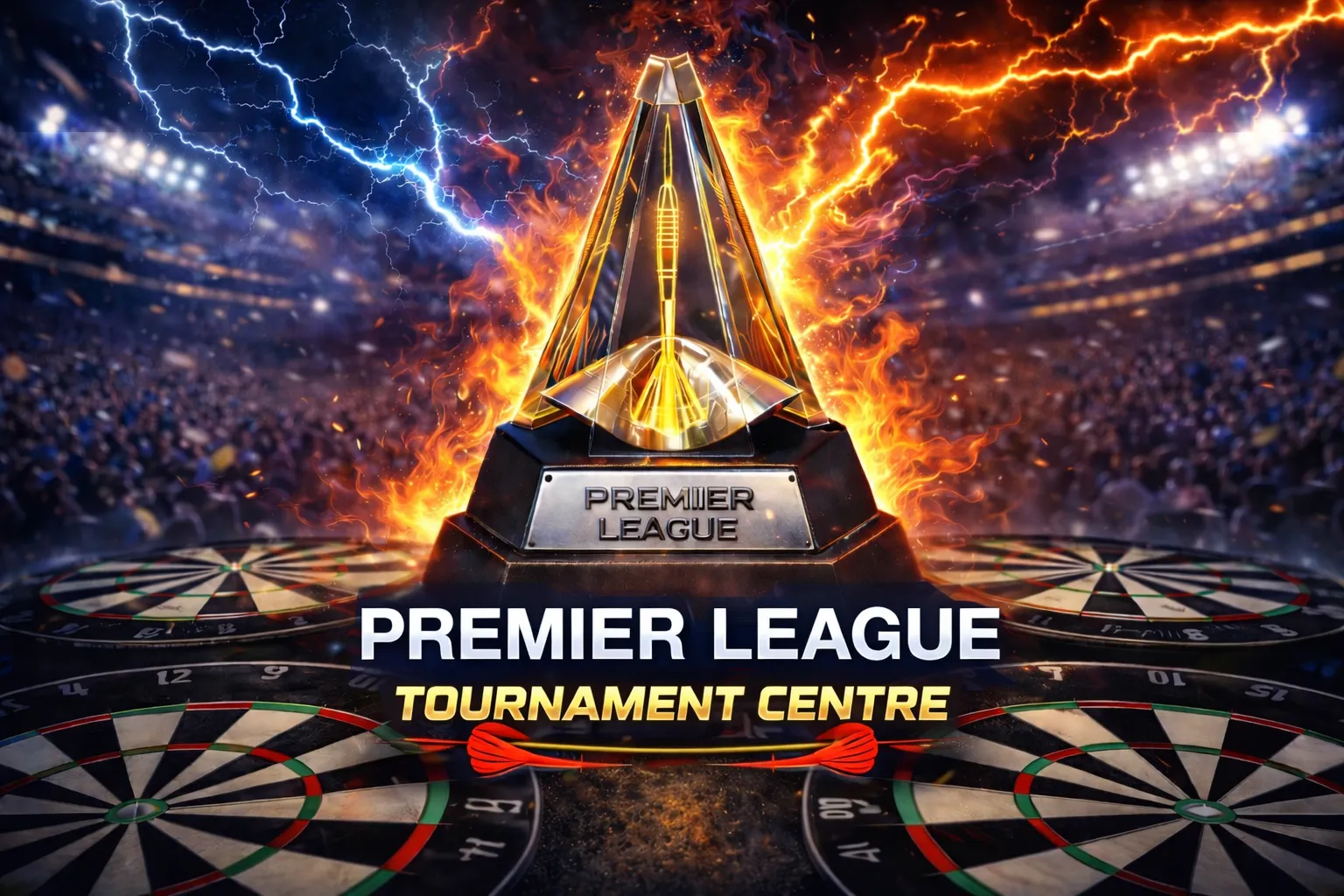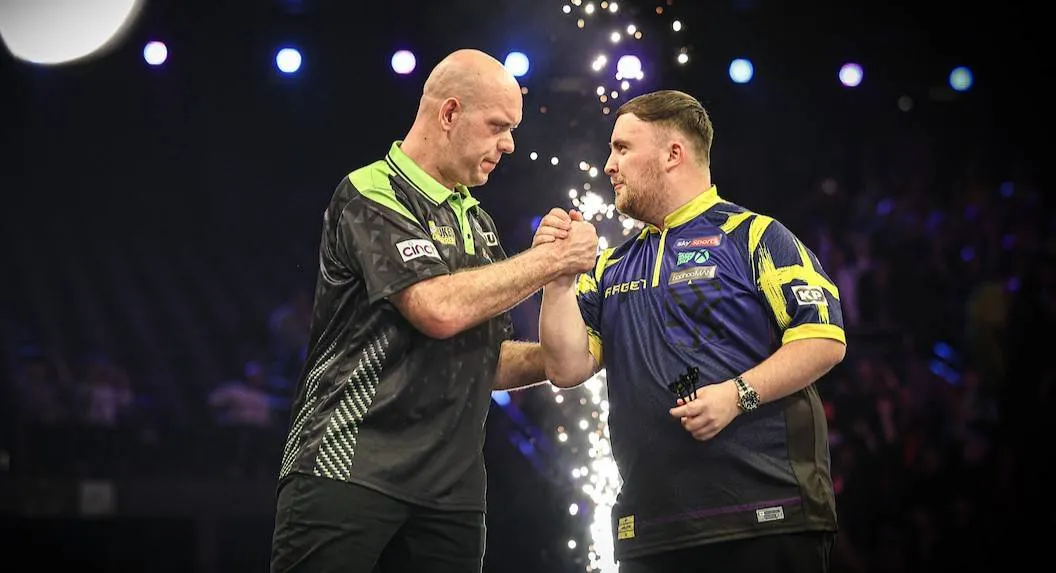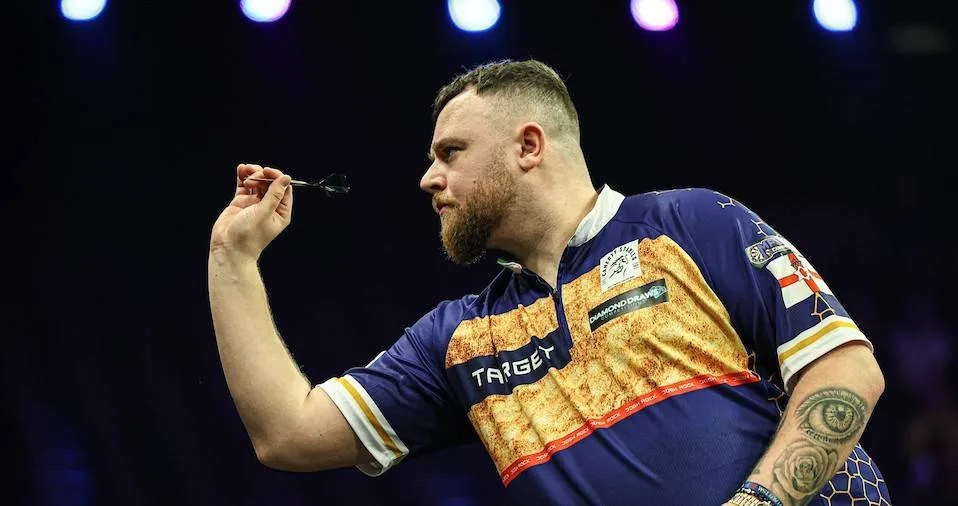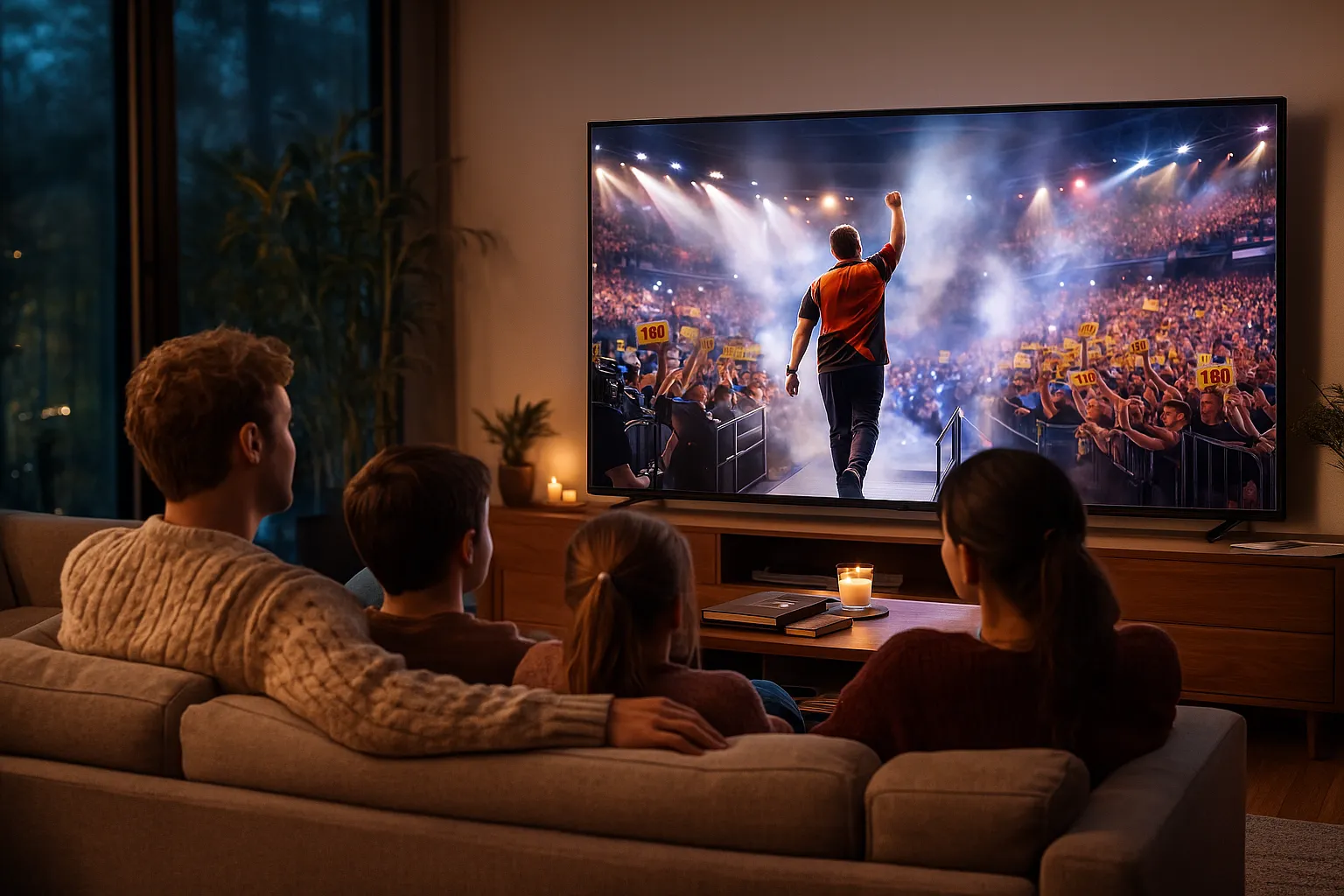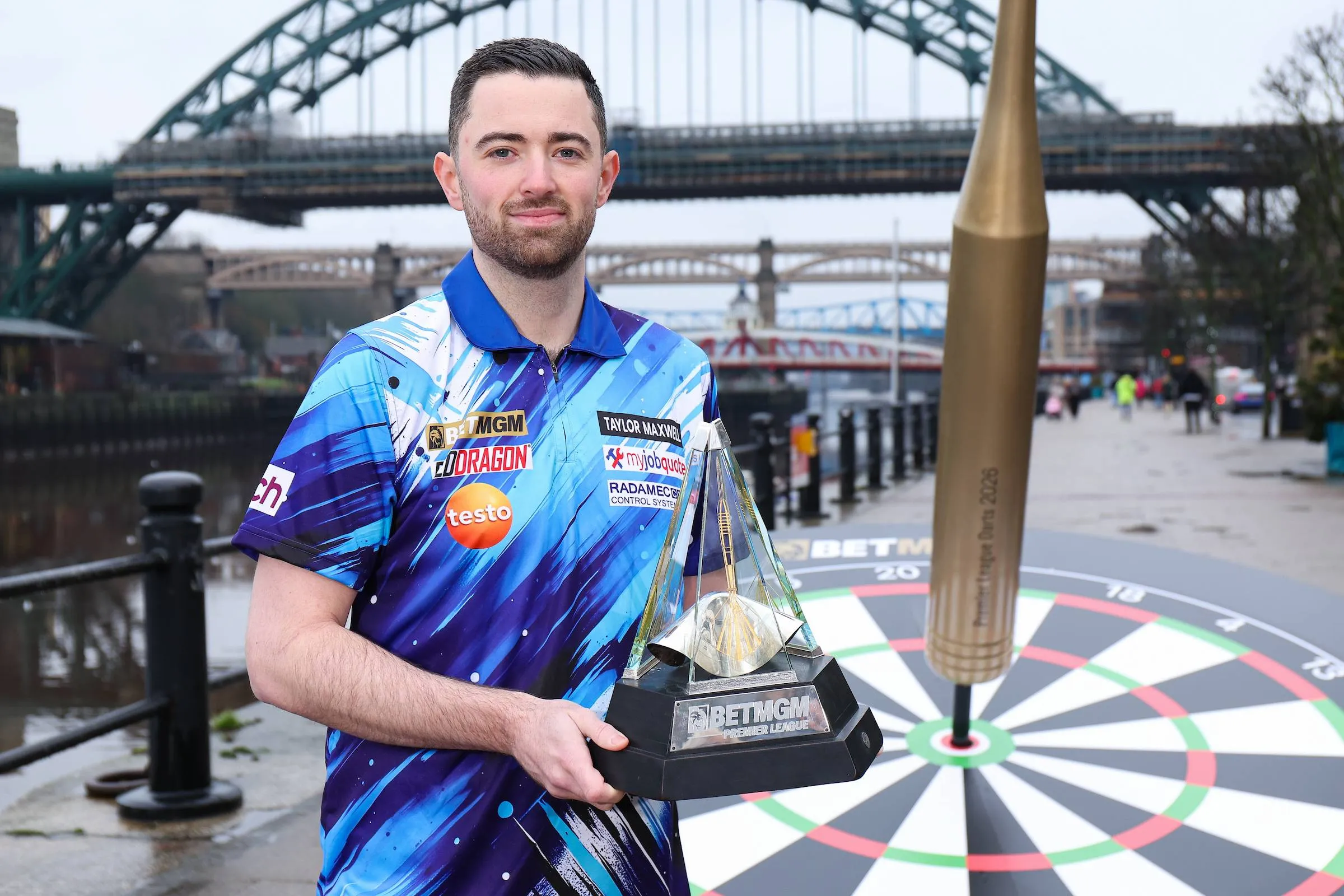EXCLUSIVE INTERVIEW | Maximilian Czerwinski is looking forward to his first PDC professional season: "Nobody can take that away from me"
PDCTuesday, 21 January 2025 at 12:14
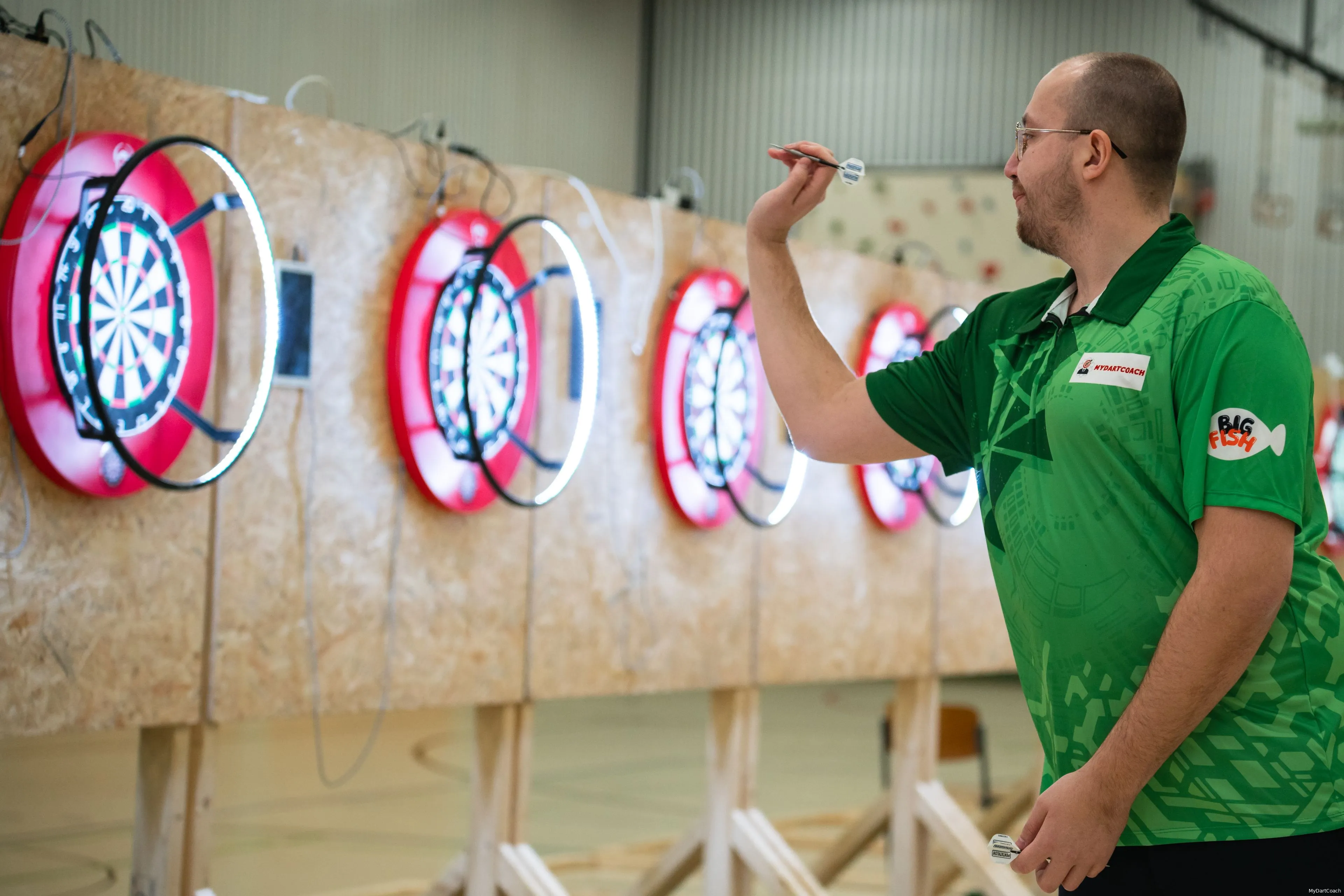
While the Q-School 2025 increasingly developed into a historic day for darts Germany on the final Sunday, the tournament in Kalkar had a real sensation in store at the end: Maximilian Czerwinski triumphed in his Q-School debut and was one of five German players to secure a PDC Tour Card.
In an exclusive interview with Dartsnews.com, Czerwinski took an exciting look behind the scenes at Q-School and explained the challenges the players had to overcome in Kalkar. In addition, the 26-year-old reacted to his completely surprising Q-School success and looked forward to his first year as a professional, but also spoke about the life-changing challenges of winning a PDC Tour Card.
Maximilian, for many you are one of the biggest surprises at Q-School 2025. What were your personal goals and expectations when you traveled to Kalkar?
We booked accommodation for the whole week and, of course, the aim was to at least play the final stage at the first Q-School. I also wanted to show good games and maybe play against one or two former Tour Card holders or matches against favorites like Jimmy (van Schie, editor's note) or Belli (Stefan Bellmont, editor's note). In the end, things turned out quite differently and I ended up with the Tour Card. Many people told me in advance that I could do it, but many also told me that I should just take the experience with me. For me, it was simply a matter of experience right from the start - as you can imagine, because I had already booked the hotels for the Challenge Tour. Just trying out the Q-School, getting to know everything so that you can really attack the next one. In the end, the Tour Card came as a great surprise - even for me. I didn't expect it at all and I totally understand that I'm considered the biggest surprise among the German Tour Card winners.
Read also
Have you been able to come to terms with this surprise success of suddenly being one of 128 PDC pros?
I have to say, I went in there with no expectations at all. Then came the game against de Zwaan and it just happened. Of course, I was abnormally happy because I already knew before the match - I was sitting at a table with Leon Weber, who was constantly updating the rankings and following all the matches - that either I or de Zwaan would get the tour card. It was super unexpected and I didn't expect how much work winning a Tour Card would entail. It started from Sunday to Monday when thousands of people congratulated me on Instagram and WhatsApp. You kind of want to reply to all the messages and then it felt like the whole Monday was already over. All of a sudden, people you've never dealt with before approach you to talk about sponsorship and so on. Of course, there's also the organizational side of things, clarifying everything with my employer - there's a lot involved. It's slowly sinking in, but you still haven't realized it 100 percent.
What conclusion did you and your employer come to? What is your plan for the Pro Tour?
I clarified this with my boss and he said "Jo, step on it!". If he ever hears that, say hello to Markus, best team leader ever! He's totally behind me, it was a half-hour conversation, it went very quickly, he immediately said "Let's do it, we can do it". I will definitely try to play the whole tour.
The Q-School 2025 was also your first Q-School participation ever. Did you quickly get used to the PDC floor atmosphere?
There was a big difference compared to everything I knew before: We already had a dartboard in our accommodation and played a bit there, then we got to the hall at a quarter to 11 on the first First Stage day - and it was packed. You knew 450 people were coming, but it was incredibly full. There were already four or five people at all the boards, including the tournament boards and all the practice boards. Before it started, it was always a fun atmosphere, like at "normal" tournaments, but as soon as you heard the announcement "the draw has been made" from the PDC and the first games were read out, you immediately noticed that everything got a bit more tense and the serious part began. The first games then started, you looked at the draw again and then came the worst thing of all: I'm someone who has to warm up a lot. But there were at least ten people on each practice board, and sometimes more, especially during the first two rounds. Then I learned on the first day to perhaps play more in the accommodation. As we slowly made our way towards the playing board, the scribe announced the last nine practice darts and then it started - a completely different atmosphere compared to what I knew before. Especially on the Development Tour or at the NEXT GEN, things are much more relaxed.
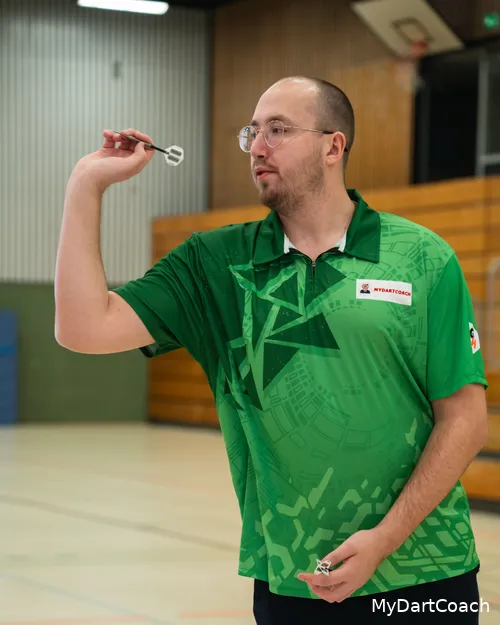
Last year, Czerwinski attracted attention with a NEXT GEN semi-final, among other things
You reached the last 16 on your first Q-School day in the First Stage. How did you leave that day feeling?
I have to say, even though the results were right, the feeling was really shitty. Maybe that had something to do with all the other stuff: In Kalkar, the air conditioning was hanging over the board and it was damn cold. Logically, with so many participants, the ventilation had to be turned on and it was really freezing. That was the worst thing for me. My hand was frozen, my arm was completely cold. The results were just right, the timing was right and I got through my games... but performance-wise, I thought to myself, if that's all it was, then you play the final stage, lose four games and then the fun is over. So the feeling afterwards wasn't so good.
You made it through to the quarter-finals on day three of the First Stage and thus qualified directly for the Final Stage. Overall, you impressed in the First Stage and qualified for the final stage in dominant fashion. Has this changed your own expectations?
After day two and three, I thought to myself, take it all - I could have said after day one that I wasn't going to play. But I thought to myself, I'm there, I'm going to the arena, I'm watching my boys, so why shouldn't I play? I think there's nothing worse than being there and having to watch. After Wednesday, the feeling was quite good... the results were right, but at times the touch wasn't there at all. I had a lot of misses in the 5 and 7 and had that in the back of my mind the whole time. I thought that the final stage would be a real challenge if I didn't get that out. But overall, it was good to know that I still managed to win the day in the end.
On the second day of the final stage, you impressed with some 90+ averages and made it through to the round of 16. How did you manage to raise your game to this level so quickly?
On the first day, I was knocked out in the first round against Simon Trommler. That was the only Q-School day on which I was really nervous because I thought I had to perform here in the final stage. I also thought about my game in the accommodation because a lot of people said to me that I was too hasty on the board, went to the board too quickly and needed to relax a bit more. Then on the second day, I thought to myself "come on, just do everything a bit more relaxed" - and that really worked. The feeling was good, the scoring felt good, I just slowed everything down a bit. I think that definitely helped me a lot on the second day. I also noticed that I was getting into the games well - but that was definitely due to the fact that I was able to warm up beforehand. Before the tournament started, there were sometimes completely empty boards or practice boards with a maximum of two players. Then it was like a normal tournament, where you can warm up in a relaxed way;
Read also
You then met Leon Weber, a good friend of yours, in round three. How did you cope with this situation?
The game was really bad... Leon really wanted the Tour Card and I had more of a "if it happens, it happens" attitude. The whole time I was wishing inside that Leon would win. But of course I couldn't let Leon win and I wanted to show that I could play. In the first leg, I hit the single 17 twice with 10 points remaining instead of the single 2 and Leon took the 1-0 with 26 darts. I was thinking the whole time that when people see this now, especially people who know me and know how many times I've said I don't feel ready for a Tour Card, they'll think I'm going to let Leon win. And I had to think about that all the time. But at some point we both got into our game better, I won the match and, of course, I was delighted.
You already announced in the run-up that you wanted to talk a lot about the final day. Why don't you review the decisive Sunday a little for us?
The day got off to a super chaotic start because we had to tidy up the accommodation. We got everything ready, had a relaxed breakfast and then arrived at the hall relatively late, just after 11am. I didn't have much time to warm up, but the feeling during the warm-up was great. Then the announcement came that the draw had been made. I saw straight away that the first match was against Harrysson. I also had Angelo Balsamo in my board group and I knew that both of them already had a lot of points. If I wanted to do Leon a favor and take revenge for the win on Friday, it was now. I got off to a great start in the match against Harrysson, and luckily I kept my nerve in the decider, it was just a good game. I just wanted to collect a few more points after the match, play against Angelo (Balsamo, editor's note) and maybe take out a few more opponents for Leon (Weber, editor's note).
You went on to beat Max Hopp 6-2 and also defeated Jeffrey de Zwaan 6-4 in the match for the Tour Card. Can you still remember the first moments after your Tour Card win? What was going on inside you?
I'm not really that emotional a player. For example, I go to the board at important moments or for important shots like I usually do, I don't cheer or anything. But in the game against de Zwaan, the emotions did come out because it was really about something. When I checked 122 and 124, I was really happy and pushed myself. When I then threw over 120, that was also one of those moments... I thought, you've got so many chances, you're so far in the lead, you can't let it slip away now with such stupid mistakes. When the game was over, everything was a bit neutral at first. On the one hand, I had to remember that Jeffrey de Zwaan had already said at the World Championships that his career might be over if he lost the Tour Card. Sure, it's a competition and the better player wins in the end, but that a match like that might end a darts career... Afterwards there was a lot of euphoria, the people who supported me were really happy. Leon (Weber, editor's note) came up to me, hugged me and gave me a kiss. Everything was still fine then, it was still 100 percent happiness. Then you go home and everything is still very surreal. I've been following the Q-School results for 2-3 years, the Players Championship results, the Challenge Tour... I would never have said of myself and my game that I would place myself there.
Maximilian, you give the impression that you think a lot about darts. Would you confirm that?
Yes... that's sometimes more positive, sometimes more negative. Of course, it can't happen in the game itself, because then it won't work. You have to be 100 percent on the board, especially now when you're playing on tour. But yes, I'm someone who thinks a lot. I think before the game, I think after the game. It's a really bad habit that I'm trying to get rid of and I'm getting better at it. I'm also noticing that I'm slowly getting my nervousness under control a bit. I used to have a huge problem with it, but I think it's getting better with all the tournaments, the matches against good opponents and the victories. I think that boosts your self-confidence and takes away the factor of thinking about maybe failing a match.
"I'm hoping for a really tough draw"
Let's finish by looking ahead to your first season as a PDC pro. Will you use your first Tour Card year to arrive on the Pro Tour or have you already set yourself clear sporting goals?
I don't want to end up saying that I played the whole tour and then won the first round twice - that definitely shouldn't be the goal. Personally, I can't even evaluate what it will be like for me on the tour yet. How it will feel to be on the board when Michael van Gerwen stands in front of me and I have to play against him. I can't judge that at the moment because I simply don't have the experience. But I definitely have my sporting goals. As I said, I want to play everything and make a good impression on my opponents. Even the better opponents should know that it won't be an easy game against me, so that you don't just get beaten up in the end and every tour card holder thinks, "Oh, now I'm playing Max, he's only won one game so far, I'll knock him out". But I'm just looking forward to it. How many people have the chance to get to know the absolute top players and legends in person and on the board? I'm also hoping that I'll get a really great draw at the first Players Championship tournament, because I think that would really push me.
You are now part of the best darts tour in the world. Where do you see the greatest potential for improvement and learning for your own game?
If I ever qualify for the stage via the European Tour qualifiers, that would of course be a huge thing. I would love to do that because I think it helps you a lot to deal with the nervousness. The first time will definitely be really tough, but once you've played in front of so many people, I don't think anything can make you nervous anymore. And then the floor events become really relaxed, I think. What I always notice about my game is that if the opponent doesn't do anything, I have the feeling that I usually don't do anything either. The opponent throws a 45 and I throw a 43, the opponent throws a 180 and suddenly I throw a 140. I hope, especially because that happens so rarely on the tour, that I can finally eradicate that from my game and always be 100 percent in order to perhaps exploit my opponents' weaknesses. That would be the most important thing for me personally. In general, it's a great opportunity to gain a foothold and evaluate for yourself whether it's a lifestyle you want to live or not. It has to be said that it's a very big life change. It takes a lot of time. Now, of course, I also spend more time on the practice board because I don't want to be at the back of the tour. In these two years, you have to cope with a lot of cuts in your private life to see if you're up for it. I'm using these two years to find out, I'll do my best and I'm just looking forward to the time and the challenge. Nobody can take that away from me. I can say I've played on the tour.
claps 0visitors 0
Just in
Popular news
Latest comments
- what a load of crocmedinabello19-02-2026
- So,it's a rubbish league,waste of time. Just put 8000 people in a building every Thursday,get them all drunk,and wonder why it's a complete joke. And forget every other player apart from 8. It's a ridiculous,inane,and needless so called competition.rick6718-02-2026
- Sorry,I've never been a professional darts player,but obviously from your comment,you have. So, going to your reply, you're blaming the management,not the player? So in that respect,he should get a different manager? That's basically all your comment is saying. Don't let him do money makers,which Barney said is easy money, instead of tournaments? Shake hands instead of trophies? Well I guess the manager knows best,as he has a big cut!rick6716-02-2026
- Sorry Mr rick67, erm what punditry credentials do you have to comment on a pundit? There's a reason why many top professionals have management teams. They know how to manage schedules etc so the players can just play. And how is Edgar wrong? Last year MVG failed to qualify by missing too many tournaments and underperforming. He's repeating the error this year so Edgar is right In calling this out.BandB15-02-2026
- Just get of Mardle,I didn't pay to watch him,and I don't want him for free! Let's see,how many world champions,either code,did you win? None! Now mason does it more as a player who was a floor player than you were putting pineapple on your shirt. Mardle,just go,you over inflated ego may follow. Tell you what,get on the seniors tour,and show everyone how good you weren'trick6715-02-2026
- Sorry Mr Edgar,erm what have you actually won to comment? Mvg has had his issues,but you have won a grand total of what? I make that nothing. So how can your comment be justified? Let him do what he likes,you do what you like, and we'll see what you win nextrick6715-02-2026
- Seems to be having a moan for no reason and using “Do-Gooder” as an insult makes no sense. It literally means someone who does good things!Wonker12-02-2026
- Mickey Vs mensur for the world champion? It's starting tomorrow,finishes in January!!rick6711-02-2026
- Oh well that's it then. Both these goofs will expect and demand premier league darts next year after this.richieburnettrocks10-02-2026
- Sincere apologies to Richie, I forgot yesterday, slightly belated but Happy Birthday to the great man. Certainly looking good for 59richieburnettrocks08-02-2026
Loading
